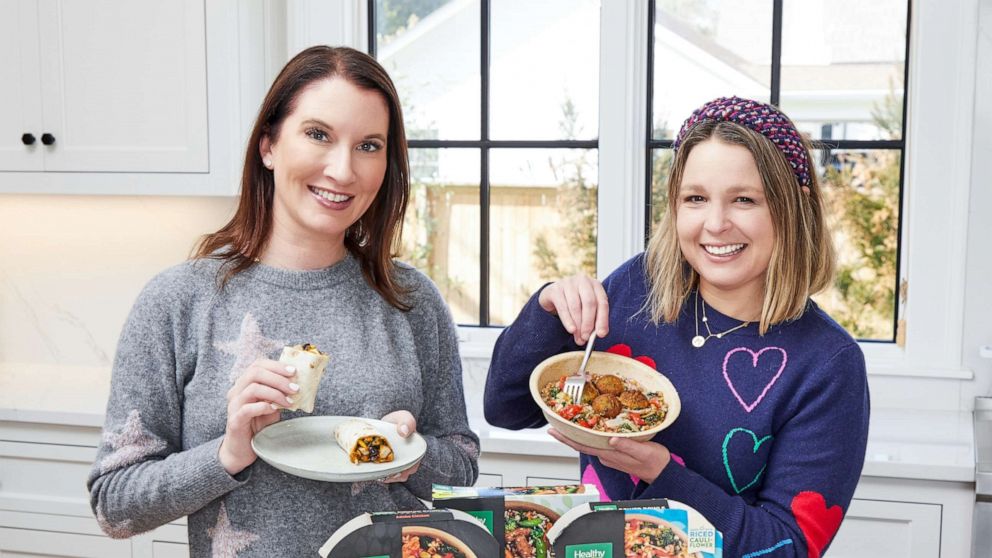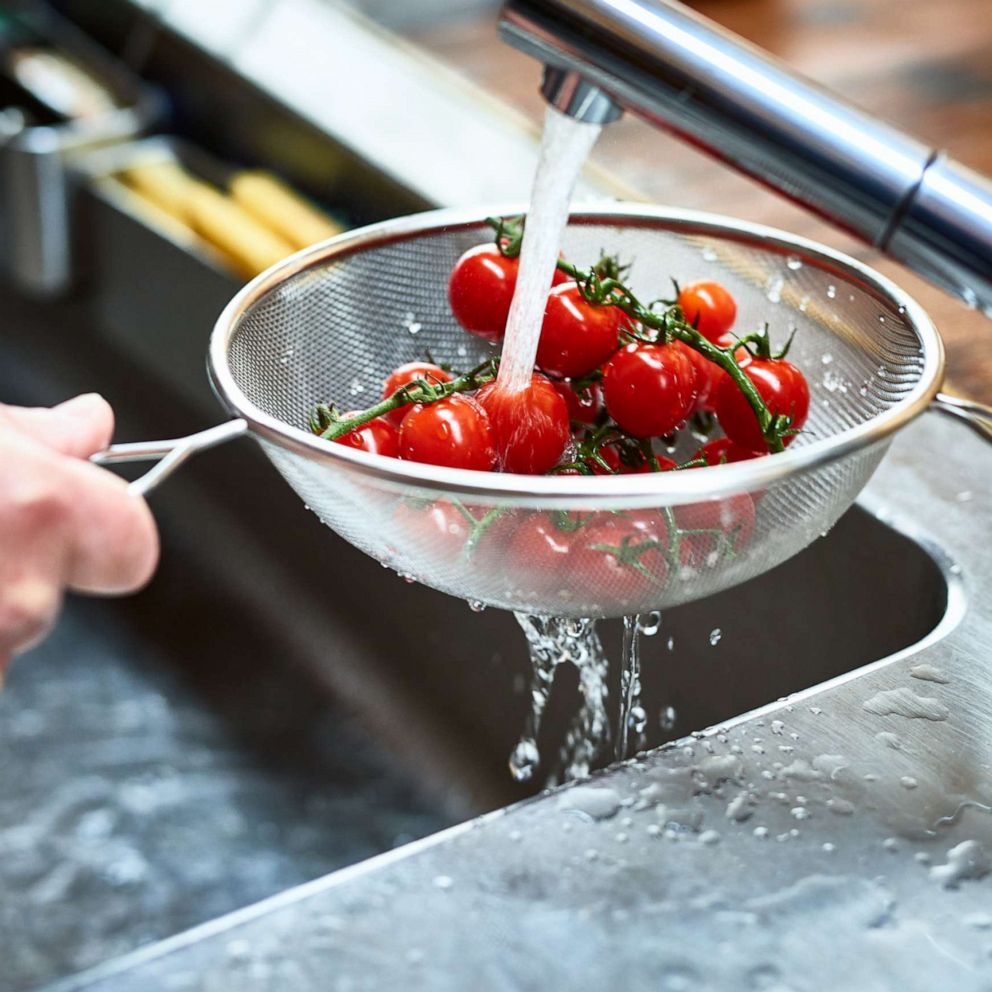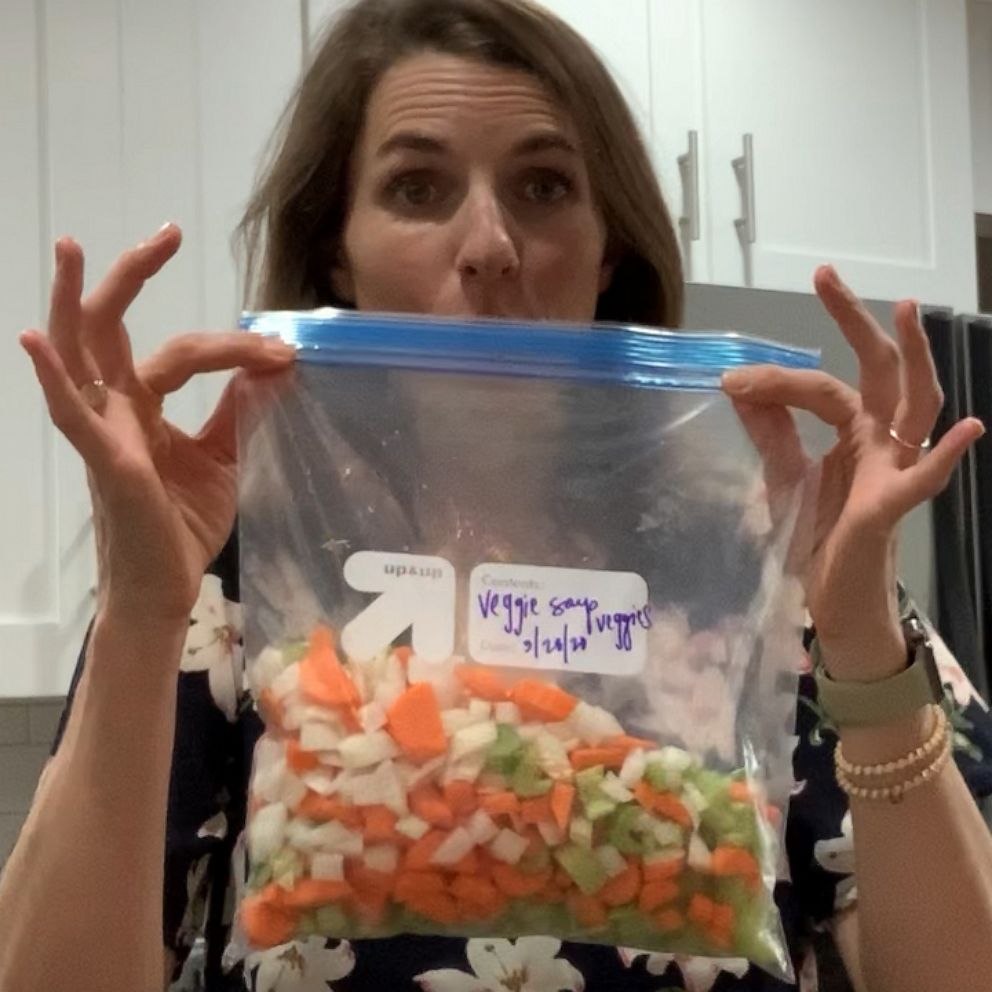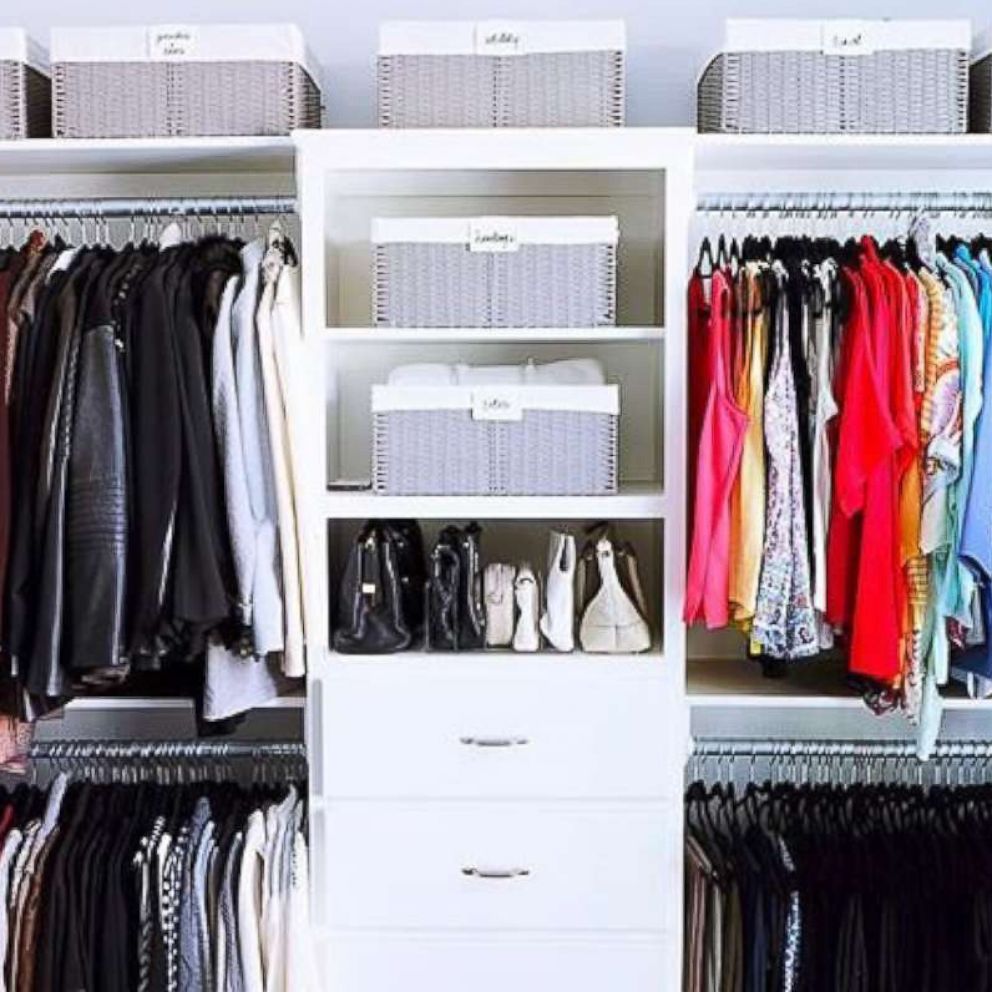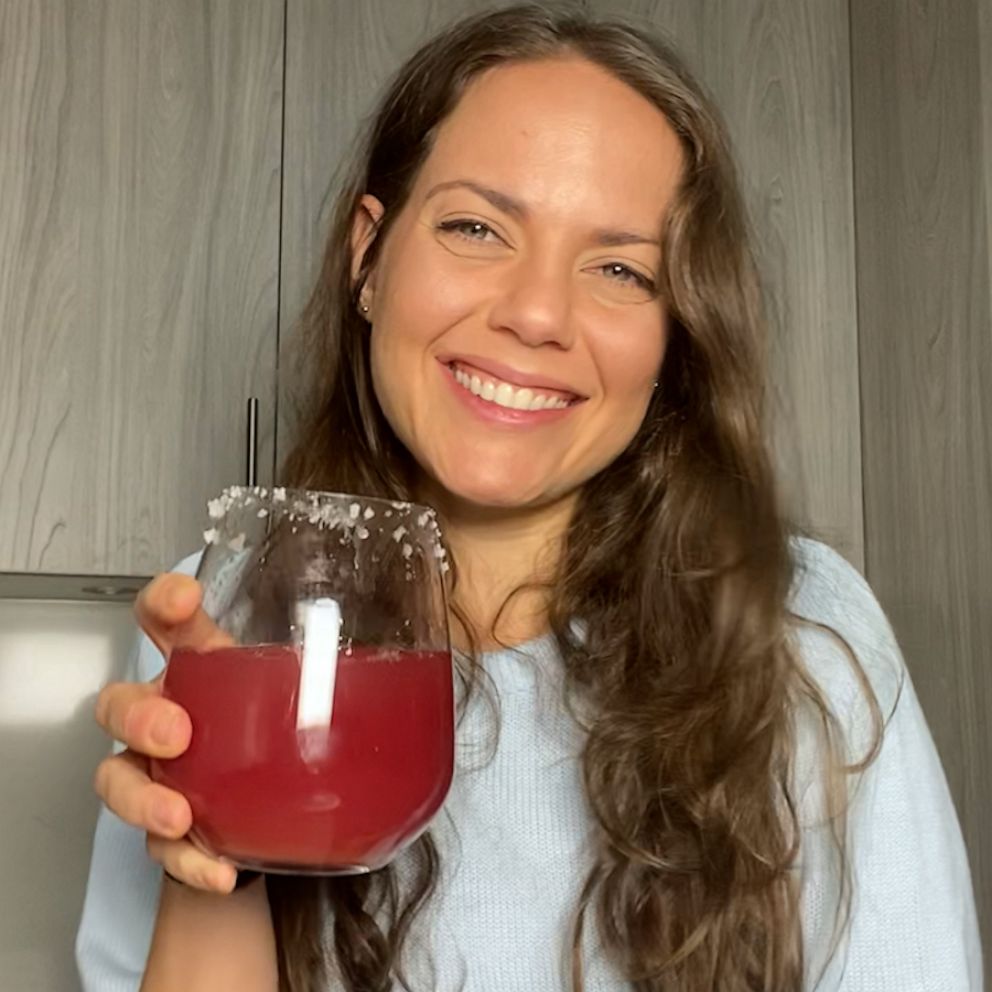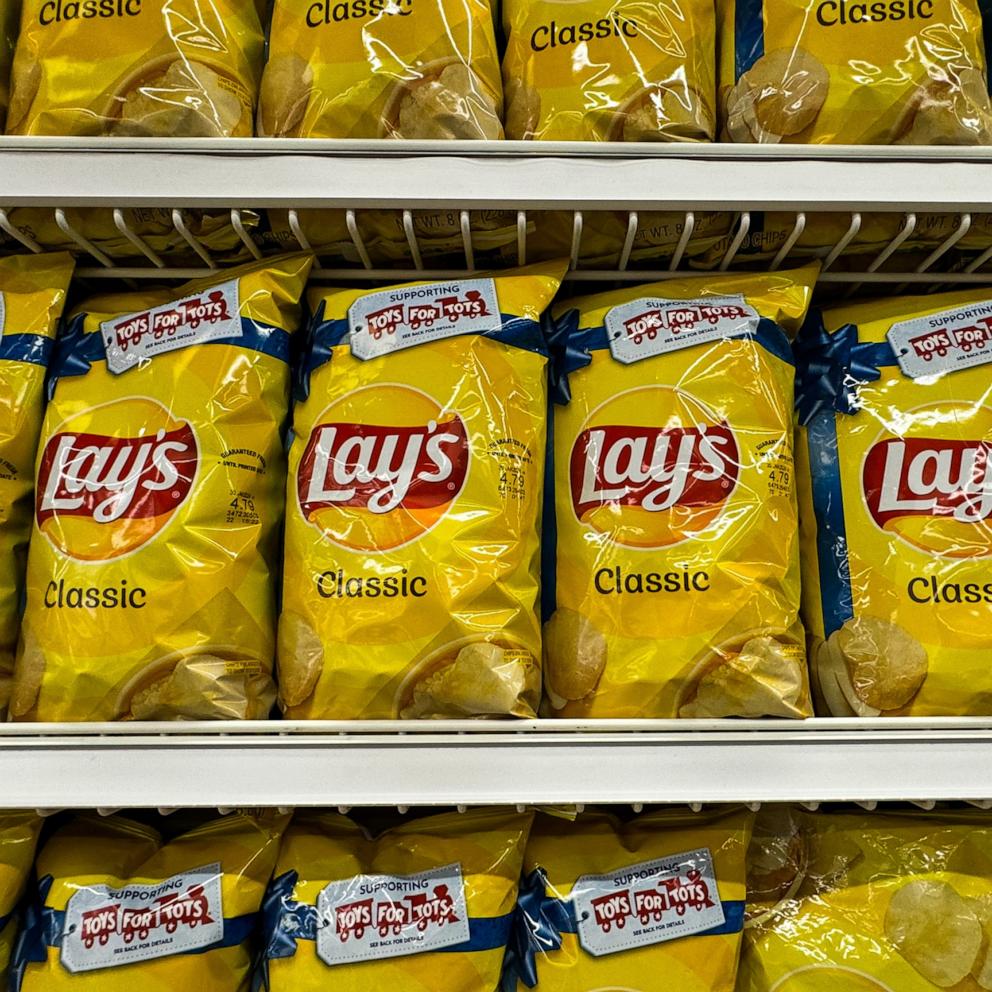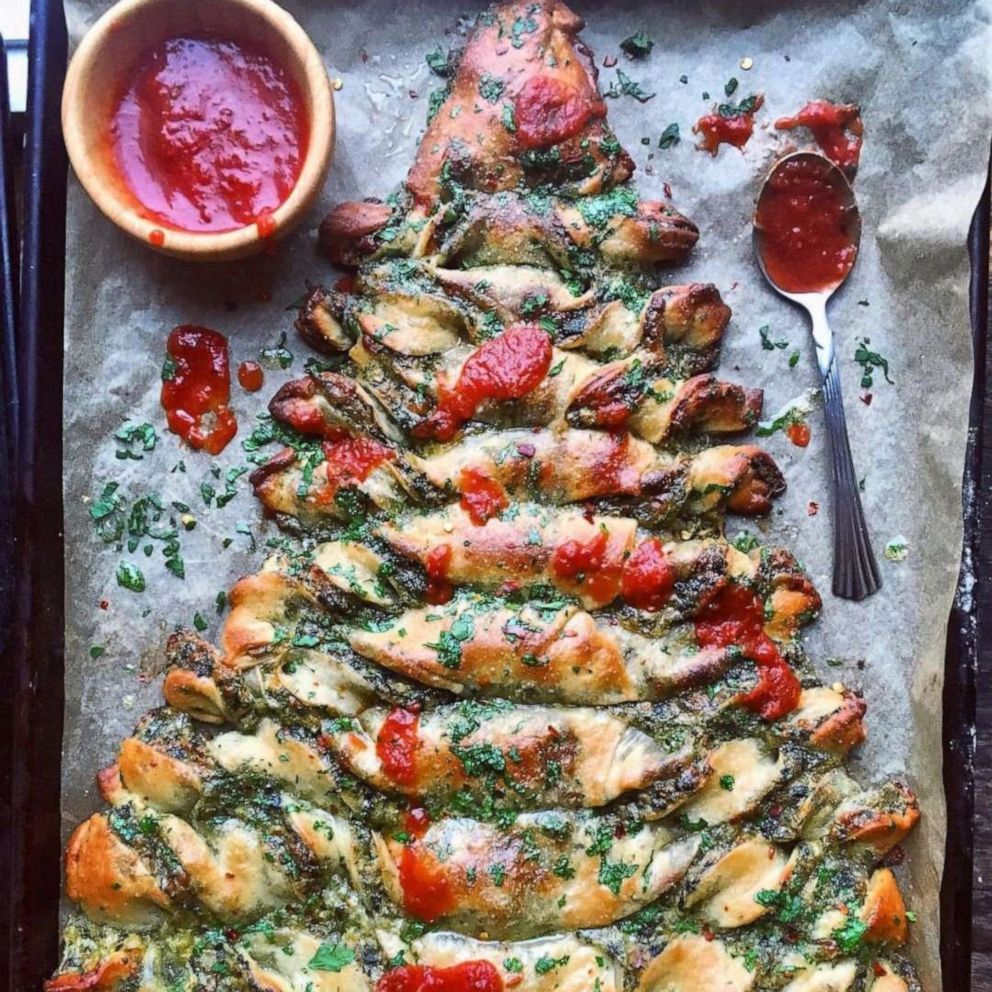How to spring-clean your kitchen with the ladies of The Home Edit

It's time to start spring-cleaning and the ladies of The Home Edit are here to help spruce up space in the kitchen with simple organization solutions.
Whether it's an overcrowded pantry, a cluttered countertop or fridge and freezer fails, Clea Shearer and Joanna Teplin are well-versed in how to transform the heart of the home.
The friends-turned-business partners and stars of their reality show, "Get Organized with The Home Edit," have helped hundreds with their fresh approach to traditional organizing that merges design and interior styling with long-term functionality.
"The best way to organize anything is the system that you're going to maintain," Shearer told "Good Morning America." "So whatever's easiest for you the way your brain works, do it that way."
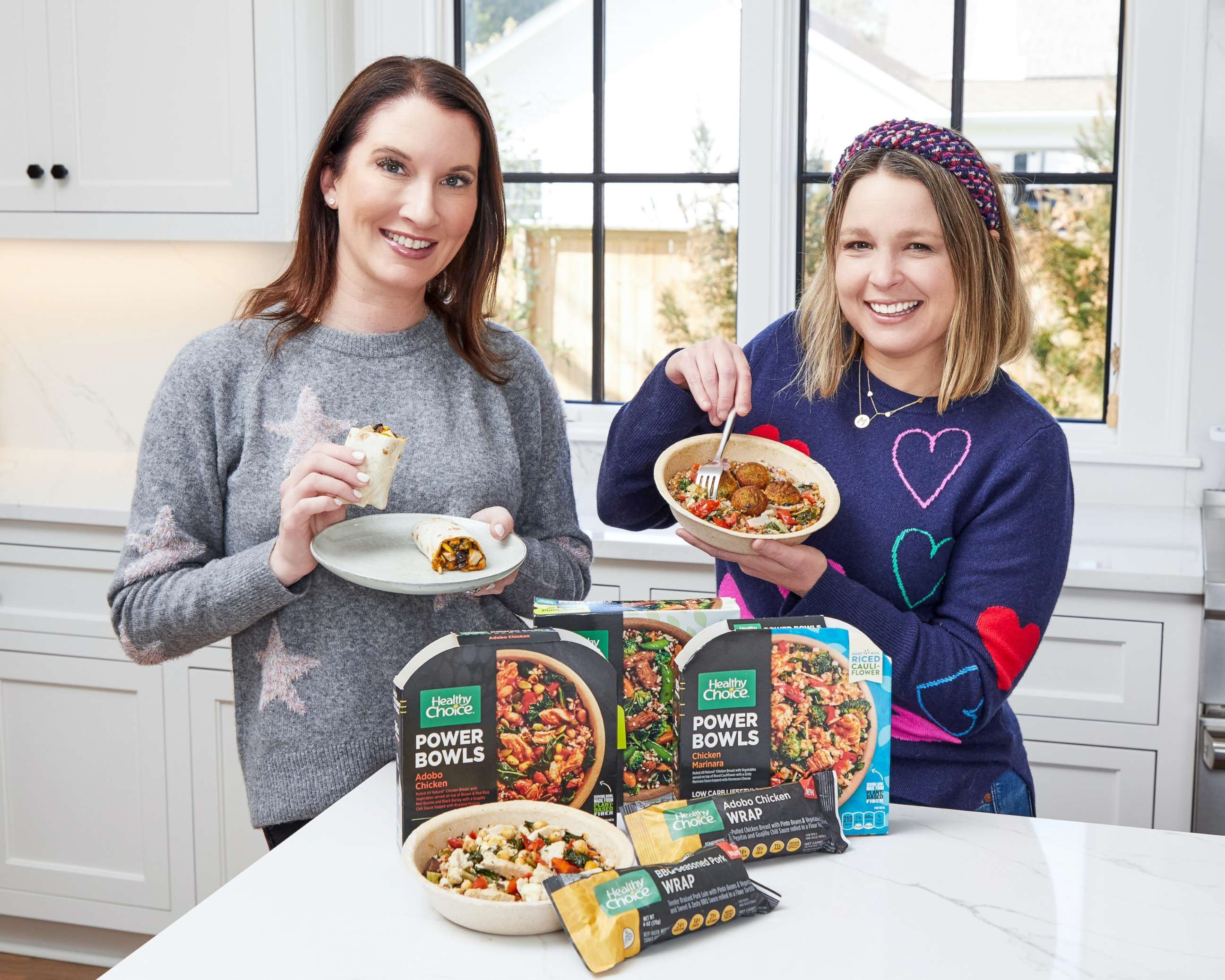
"Being organized makes your day so much better," Teplin said. "Especially now more than ever, who doesn't need a win for the day when other things are so hard. Once you've created a system that you want to maintain, you're more motivated to actually maintain it."
Pantry
Consolidate: Some staple ingredients may fly off the shelves in one person's kitchen cupboards and in another sit forgotten a top shelf until it's time to reorganize.
In order to control the chaos in a pantry with products rotating in and out as people continue to cook more at home, Teplin said, "the first thing to do is take everything out, check expirations date and then categorize it."
Categorize: You want to see like things with like things.
"Put all cans together, all chip bags together, all snacks -- again whatever makes sense for you to easily navigate and come back -- then organize within those groups," Teplin said.
Contain: Use clear storage.
"Once its contained then you have an actual space for each of those items that you should maintain well. If you exceed that space you're going to have free floaters and lose your system and create chaos again," Teplin said.
Consistency: Label it.
"People like to think it's just aesthetically pleasing, but the label is a set of instructions for every person in the household," Shearer said. "It holds you accountable -- it's plug and play, you don't need to think about it and you just put it in where it has an assigned spot."
Fridge
"A fridge comes down to zones," Shearer said. "When you create a zone it's really beneficial to have some kind of label attached to it, because it's a visual representation and you hold yourself accountable."
Compartmentalize: Have a designated spot for each item.
For example, Teplin said she keeps all her condiments on the fridge door shelves and further categorizes from salty to sweet. "That just allows for you to not have things slide between the crevasses in the space because everything has a home," she said.
"It reminds you this is the amount of space I'm allotting items. If I'm exceeding the space, I need to think about why. Am I not eating enough of it or am I running low on that item?" Shearer considered. "Even more so than a pantry, these are perishable items so you really want to make conscientious decisions on what you're buying."
Teplin added that everyone is working with limited space and that assigning a specific amount per section "really does hold you accountable."
Freezer
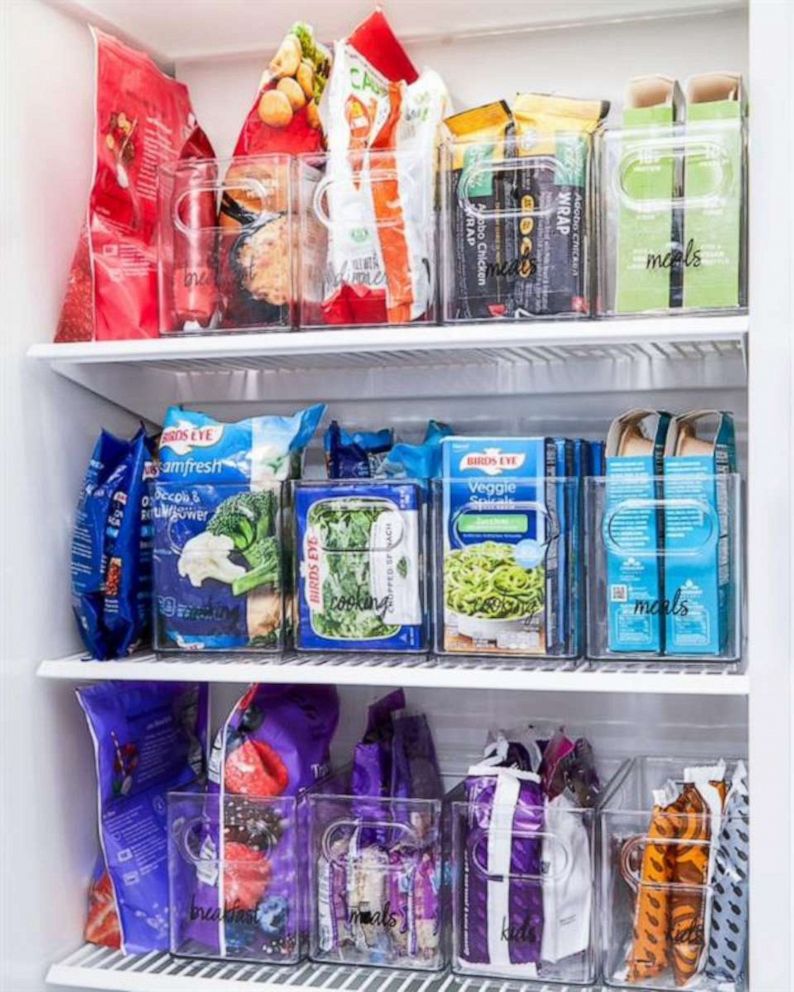
Categorize: Separate types of food into appropriate sections.
The pair suggested organizing a freezer by separating types of foods into sections, "however it makes sense for you to grab it easily -- whatever you're cooking or preparing."
"You could have it by type of ingredients -- fruit, vegetable, protein -- or go from breakfast to dinner or even meal prep to already prepared meals," Shearer said. "There are all sorts of different ways to do it. We even add a section of things that need to be thawed before you eat it."
"We love a brand that uses bags and boxed items appropriately so that we can store everything and make it look nice in the freezer," Shearer said of the seamless integration working with Bird's Eye frozen foods. "It was a partnership made in heaven."
Countertops
"Any flat surface is a slippery slope," Teplin said.
But if there are must-have items like a coffee maker, pods and a milk frother, Shearer said to try creating stations; "I organize it on a tray and create a zone for it and that way it doesn't feel like it's left on the kitchen counter, it's an intentional act," she explained. "The tray is a good way for that kind of containment," Teplin added.
Additional Spring Cleaning Tips
Clean up and clean out
"Take things out of cabinets, out of drawers, clean the drawers down," Shearer said. "Make choices about whether you're going to take the time to put it away and store it. That's when people become more conscientious."
Remove unnecessary packaging
"Whenever you take the active step and remove packaging, transfer things to a canister or whatever that might be, you number one are happy with the way it looks -- but you're also likely loosing packaging that's bulky and taking up space," Shearer said.
If you have multiple partially used items with a tiny bit left, like spices, Shearer said "add all those together in a fresh container -- as long as there isn't a nutritional difference or expiration date that you have to be mindful of -- you can lose some of that extra bulk and it's amazing how much space you can gain back."
Make things more visible
Teplin said they believe "clear storage is very, very helpful particularly in a fridge and freezer. It's core to what we believe in this space with perishable foods to be able to see what you have, need to restock or be eating."
"If you can't really see what you're needing to use -- I think you're doing yourself a disservice."
This story was originally published on March 2, 2021.
